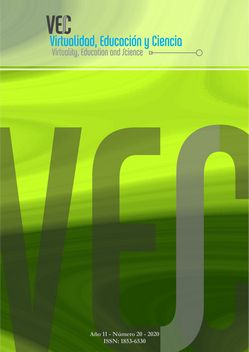Ten frequent (and urgent) questions about computational thinking
DOI:
https://doi.org/10.60020/1853-6530.v11.n20.27453Keywords:
computational thinking; computer science in school; school robotics; transversalityAbstract
In this article we address some frequently asked questions related to Computational Thinking and Computer Science in schools from a perspective that seeks to investigate behind the fashions that prevail regarding the uses of technology in the school environment. In this sense, it becomes necessary to get involved in other related matters, such as school robotics or transversal teaching of the Computer discipline. The word "urgent" in the title accounts for the need of some epistemological clarity necessary to accompany the processes of inclusion of these concepts in argentine schools.
Downloads
References
BENITTI, F. B. V. (2012). Exploring the educational potential of robotics in schools: A systematic review. Computers & Education, 58(3), 978-988.
BOYCE, A. K., CAMPBELL, A., PICKFORD, S., CULLER, D., & BARNES, T. (2011, JUNE). Experimental evaluation of BeadLoom game: how adding game elements to an educational tool improves motivation and learning. In Proceedings of the 16th annual joint conference on Innovation and technology in computer science education, 243-247. ACM.
CLEMENTS, D. H., & GULLO, D. F. (1984). Effects of computer programming on young children's cognition. Journal of Educational psychology, 76(6), 1051.
DENNING, P. J. (2017). Remaining trouble spots with computational thinking. Communications of the ACM, 60(6), 33-39.
DORAN, K., BOYCE, A., FINKELSTEIN, S., & BARNES, T. (2012, JULY). Outreach for improved student performance: a game design and development curriculum. In Proceedings of the 17th ACM annual conference on Innovation and technology in computer science education, 209-214. ACM.
GUZDIAL, M., (2011). A Definition of Computational Thinking from Jeannette Wing. In Computing Education Blog, Atlanta.
K-12 Computer Science Framework (2016). Technical Report. ACM, New York, NY, USA.
KAZAKOFF, E. R., SULLIVAN, A., & BERS, M. U. (2013). The effect of a classroom-based intensive robotics and programming workshop on sequencing ability in early childhood. Early Childhood Education Journal, 41(4), 245-255.
KAZIMOGLU, C., KIERNAN, M., BACON, L., & MACKINNON, L. (2011). Understanding computational thinking before programming: developing guidelines for the design of games to learn introductory programming through game-play. International Journal of Game-Based Learning (IJGBL), 1(3), 30-52.
KYSILKA, M. L. (1998). Understanding integrated curriculum. Curriculum journal, 9(2), 197-209.
MARTINEZ, C., GOMEZ, M. J., & BENOTTI, L. (2015, June). A comparison of preschool and elementary school children learning computer science concepts through a multilanguage robot programming platform. In Proceedings of the 2015 ACM Conference on Innovation and Technology in Computer Science Education, 159-164.
ACM.
NARDELLI, E. (2019). Do we really need computational thinking? Communications of the ACM, 62(2), 32-35.
NATIONAL RESEARCH COUNCIL (2010). Report of a workshop on the scope and nature of computational thinking. National Academies Press.
SELBY, C. C. (2015, November). Relationships: computational thinking, pedagogy of programming, and Bloom's Taxonomy. In Proceedings of the workshop in primary and secondary computing education, 80-87. ACM.
SCHERER, R., SIDDIQ, F., & SÁNCHEZ VIVEROS, B. (2018). The cognitive benefits of learning computer programming: A meta-analysis of transfer effects. Journal of Educational Psychology.
UNESCO/IFIP TC3 MEETING AT OCCE. Coding, Programming and the Changing Curriculum for Computing in Schools Report – Date of report: 4 February 2019.
WING, J., (2006). Computational thinking. Commun. ACM 49, 3 (March 2006), 33-35.
Downloads
Published
How to Cite
Issue
Section
License
The generation of derivative works is allowed as long as it is not done for commercial purposes. The original work may not be used for commercial purposes.


